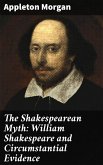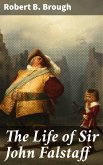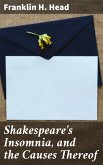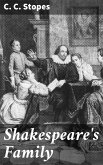This book contains the speculation on the real identity of William Shakespeare and the authorship of poems that are traditionally attributed to him. Johnson states that the sonnets' tone reveals the writer's personality and that personality differs from the biographical accounts of Shakespeare.
Dieser Download kann aus rechtlichen Gründen nur mit Rechnungsadresse in A, B, BG, CY, CZ, D, DK, EW, E, FIN, F, GR, H, IRL, I, LT, L, LR, M, NL, PL, P, R, S, SLO, SK ausgeliefert werden.









